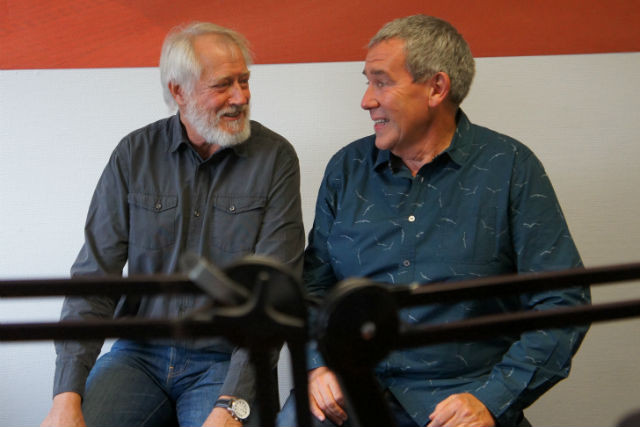It may be hard to imagine now but before bursting onto the scene 25 years ago, its founders broadcast a pirate station out of a garage in Kirchberg, in a bid to breakup the media monopoly at the time.
“We had programmes all day, from 7am to midnight. It was only volunteers. We had no money but there was an extremely strong demand,” Radio Ara co-founder Robert Garcia said of the then “Radau Letzebuergech” (Luxembourg Noise).
Until 1991, RTL was the only radio station permitted in Luxembourg, a monopoly which gave them unique access to government revenues from advertising campaigns. What is more, because of the conservative nature of the media scene in Luxembourg, people outside of the so-called social norms of the time had no outlet to express themselves through. For listeners, meanwhile, the monopoly meant considerable less musical choice on offer. Garcia explained: “There was a lot of pressure from the young audience to have different programmes with many types of music.”
The government responded to growing pressure by amalgamating all the frequencies in the country to create four new frequencies, leading to the creation of stations DNR, 100,7, Radio Latina and the not for profit Radio Ara.
Crowdfunding appeal
Their project quickly found favour with residents, who were queuing up to present programmes on the new community station. Having already co-founded “Radau Letzebuergech” and before that another station in Arlon in 1981, Garcia and technician Jean Krips were no strangers to broadcasting. But, they faced a major obstacle--they had no financial backing. The group’s solution was to launch a crowdfunding appeal, quite rare for the time, raising 500,000 lux francs (equivalent to €12,500) to fund the studio equipment.
“Every cent was important. We would buy the support for the microphone but not the microphone. That could come later,” Krips recalled.
The group rented their first studio space on the second floor of a building owned by Bofferding on rue de la Boucherie where Krips installed everything over hundreds of hours in his free time. “Every time I think about what we did in this short time I think I couldn’t do it now,” he recalled.
A gift from St Nicolas
Krips also financed and installed a transmitter in Limpertsberg in time for the launch at midnight on 6 December, 1992. “It was a gift from St Nicolas to Luxembourg,” Krips said, adding: “That first night, one of our guys came dressed as St Nicolas and turned up with the keys.”

Picture, St Nicolas at the Radio Ara studios for the first broadcast on 6 December, 1992
Despite the lack of funds, the station became a huge hit, and, three months later, the founders launched a successful appeal for funds from listeners, on which the station depends today. In the intervening years its programmes have evolved in line with the volunteer presenters and music aficionados who request a slot.
“That’s the main characteristic of the radio and still is--that all the music programmes are authentic. The people who do their programmes aren’t forced to play pop or classical music. They’re really nerds, fanatics of their music. They know everything about it,” Garcia said.
ARA City Radio joined the frequency in 2000 broadcasting in English every weekday morning. Meanwhile, the educational element of Graffiti has also borne fruit, with many alumni from this segment going on to pursue media careers.
An unchanged philosophy
Today Radio ARA’s philosophy remains unchanged--to be a community radio for everyone, as opposed to being a radio for specific communities. Over the years hundreds of people have adopted this philosophy as guests or presenters on the many shows.
Sadly, too, its financially precarious situation remains unchanged. Garcia recalled that financial discussions dominate most meetings at the station. “We have tremendous difficulties if we have technical problems. We can’t afford to buy new equipment or repair,” he said.
However, that could be about to change as the team begins government talks for the first time to about finance.
“Some months ago we met with the government and said if we could have some budget to pay 2 or 3 more people, to pay the staff, it would help us quite a lot,” Garcia said, adding he hoped this would pave the way for a law that could support other non-profit radio stations.
Get involved
Join Radio Ara in celebrating its twenty-fifth anniversary year at one of the many events scheduled, including an open mic with Salam at Konrad Café on 21 October, a music quiz at Gudde Wëllen on 23 November, special radio drama broadcasts each Monday morning in November and countless other music events. For the full programme, visit www.ara.lu
